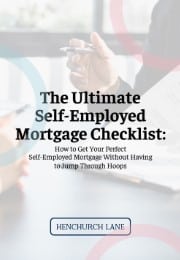Bad Credit Mortgages
- Friendly expert mortgage advisers
- We work with dozens of lenders
- Access to competitive rates
Home » Bad Credit Mortgages

Bad Credit Mortgages
Paul Holland sits down and explains everything Bad Credit mortgages.
What is bad credit?
Bad credit can come in many different forms, it could be as little as one late payment, which is the least aggressive form of bad credit, to a Default, where you’ve missed six payments consecutively on the same agreement, or a CCJ, where the lender initiated court proceedings to reclaim that money. Even all the way up to Bankruptcy is classed as bad credit, so it comes in many different forms.
How do I know if I have bad credit?
There are multiple different credit referencing agencies, and their job is to collate the credit history from your accounts on a month-to-month basis. More popular credit reference agencies are Experian and Equifax, but there are others that are regularly used as well, such as Transunion, Crediva or CheckmyFile, and they all collate that information that every lender will look at.
Anyone that you hold an account with will report back to these platforms on a regular basis about whether you’ve paid them that month. Credit reference agencies build a history of those actions across all of your active accounts, and this will stand for six years.
Some platforms have a free service, like Clearscore, an app that you can download on your phone. They are powered by Equifax and will give you a free update on your credit status and a history across all of your different accounts. Equifax and Experian have free versions of their service that gives you a limited amount of information about your file. To get their full reports, generally they offer some kind of thirty day free trial incentive, but if you continue beyond that point, it comes with a small membership fee to have access to your full credit file.
Will anyone lend to me with bad credit?
Each lender will have criteria that you need to fit. They’ll have a credit profile of their ideal client and their risk appetite. Some lenders would refuse you if you’ve got even very minor bad credit, like one missed payment recently. Lenders who are likely to offer you the most competitive rates are more likely to ask for the cleanest of credit reports.
Lenders that are going to be a little bit more lenient in terms of bad credit are going to have more expensive rates. There are options for most credit profiles, but generally, the worse credit, the more expensive it is, because the lender is trying to cover their risks. They’re offering products to people that are historically more likely to not pay them back, so that comes with a premium.
Can you get a mortgage with a 500 credit score?
Yes, there are lenders that wouldn’t even look at a credit score, as they’ll have their own scoring system that would dictate their outcome for an application. A credit score is not really the be all and end all, it’s more so down to the detail, rather than just the score.
How can I improve my credit score?
There are many different ways that you can improve your credit score. The first thing that anyone should do is download a report to highlight the things that are positive and negative. If there are negatives, they’re the first things that you need to action. If you’ve got an account that’s in arrears, bring that up to speed.
If it says that you’re not on the electoral roll, register there. The next thing would be to not continue to make those errors, if you are falling behind on your agreements and missing payments, then stop it. You really need to show lenders that you’re able to keep up with financial agreements before you start asking for hundreds of thousands of pounds worth of debt.
The next point is keeping your revolving debt low. Revolving debt is things like a credit card that you have access to pay off and spend on that have got a limit. The percentage usage of that will have a bearing on your overall credit score. For example if you’ve got a £1000 limit on a credit card and you’re using £999 of that, it’s not going to look good for you, whereas if you were using a hundred pounds of that, or 10% then that’s going to look a lot better. Keeping that below 50% is advisable and ideally below 25%. Try to pay them off as quickly as you can.
Lastly, the amount of applications that you put forward for credit, especially if you’ve got 3 in a short space of time doesn’t look good. Ensure there are three to six months between any applications for credit.
Can I get a mortgage with a CCJ?
A County Court Judgement is going to be listed at the bottom of your credit file, and it will show the details of when it occurred, how much it was, and the outcome, whether you’ve satisfied the CCJ or it’s still outstanding.
You can get a mortgage with a CCJ, but it’s subject to a much broader set of criteria and questions. The length of time since it was registered and whether or not it’s been satisfied, all of those things are going to be taken into account and lenders are going to devise their own specific criteria as to whether or not they would accept that or not. Lenders will be less concerned with CCJs older than six years.
Can I get a mortgage with a Default?
Defaults are viewed in a very similar way to CCJs, so the same sort of questions are going to be asked. Whether it’s satisfied, how much it was for and how long ago. Generally a default is something whereby you’ve missed six payments on an account consecutively and it stays on your file for 6 years.
Can I get a mortgage with an IVA?
An involuntary arrangement is a completely different and much more in-depth, serious discussion. It will certainly need to have been satisfied before lenders will look at you. At the very minimum I’d say it needs to be satisfied for twelve months before anyone will consider your applications, and this will be along with a whole host of other criteria.
This one is much more of a case by case basis and needs specifically discussing with a broker, but it’s going to be a lot more damaging to you than a CCJ or a Default would be.
If a First Time Buyer or someone that needed to remortgage had bad credit, would the process be any different?
Not really, the criteria that’s laid out by lenders is relatively similar. The reason that it might differ for First Time Buyers might be that it’s a bigger profile. If you are an existing homeowner, you’ve got previous conduct with a mortgage lender and you’ve paid them for six years straight, you’ve got lots of equity in your property.
A few payments on an unsecured credit card might not be as damaging as it would be for a First Time Buyer, because they don’t have the history of paying a mortgage or any equity. When an underwriter looks at a case they’re assessing all that information in the background as well. But generally if you have an adverse credit file,it’s going to have a similar sort of impact on you regardless of whether you’re a First Time Buyer or remortgaging.
Your property may be repossessed if you do not keep up with your mortgage repayments.
Why Us?
- Friendly, expert mortgage advisers
- We work with dozens of lenders
- Access to competitive rates

